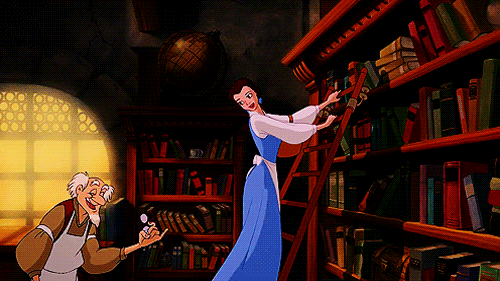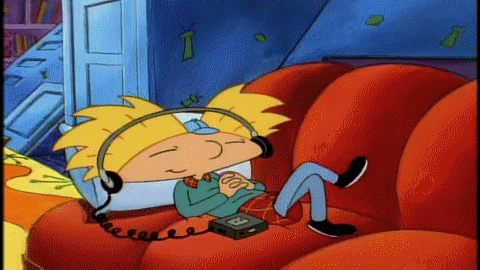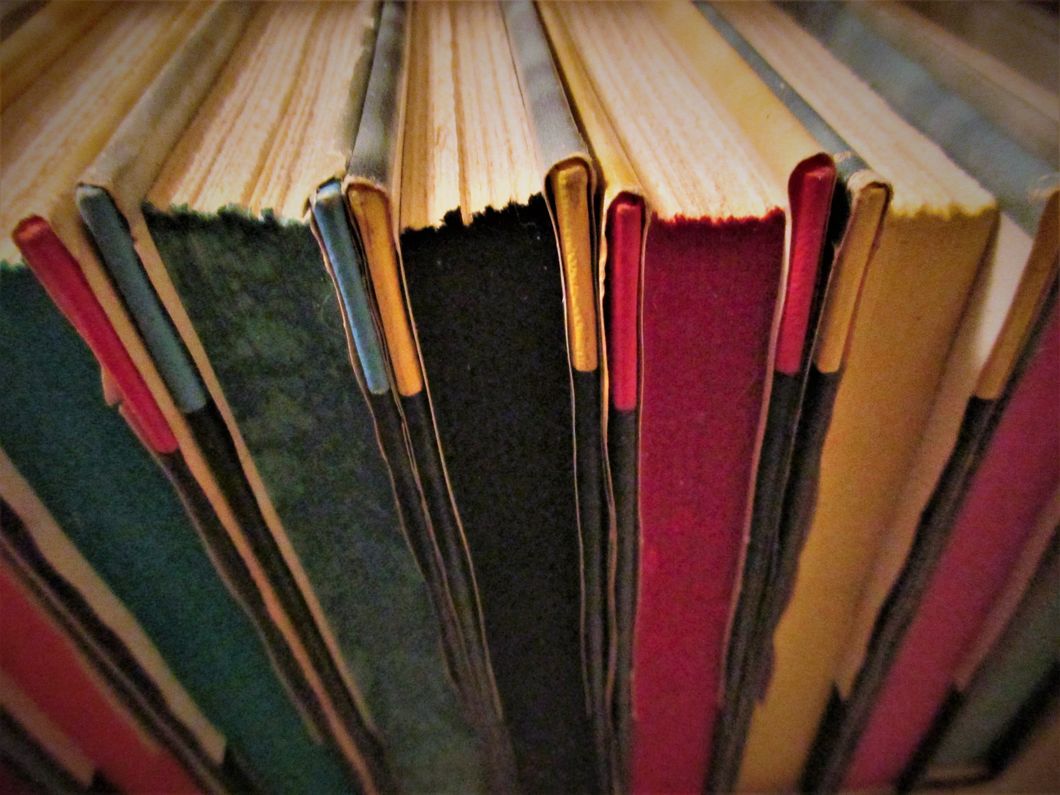Welcome back
Sign in to comment to your favorite stories, participate in your community and interact with your friends
or
LOG IN WITH FACEBOOKNo account? Create one
Entertainment
Reader Shaming Is Not OK
We should never feel ashamed to do the things we enjoy.
08 April 2019
48
I don't think it's a surprise to anyone that some people enjoy reading as a pastime. It's not always analyzing a text to death the way we're taught to do in our high school English classes. I personally find reading a book just as enjoyable as watching a good movie or tv show. In school, we were praised by our teachers for reading.
However, not everyone loves reading, and that's okay. If the most you want to read is Facebook post that's fine. You are not lesser just because you don't want to read a 300+ page novel.
However, something I will not tolerate is reader shame. Doesn't matter what kind it is, whether it's shamming someone for the format they read, the genre they read or just reading in general, that's not okay.
First of all, why would you shame someone for reading? Especially if it's something that brings them joy and happiness (and the occasional tears over dead fictional characters). Unless that person is smacking someone over the head with their book, they're not hurting you or anyone with their reading.
Making fun of someone for their taste in books is also not cool. Two genres, in particular, seem to be seen as "lesser" by some people in the book world: romance and young adult. What's wrong with romance? Most of us want to find love, so why not read a book about someone finding love?
Also, side note: I don't understand why young adult is considered a genre. The term young adult is used in the publishing industry to target a certain age group, not a specific genre. Within young adult, there's romance, fantasy, science fiction, contemporary fiction. You can't put all young adult books under one cap.
I know more adults than teenagers who read young adult and have been shamed for reading it. I myself sometimes feel the need to shield a book I'm reading in public just because I'm reading a book that's considered "for teenagers" and I'm in my 20's now and should be reading "adult books." Well here's the thing, I haven't run into many books that I'm interested in that are about college students. I go to school, I hang out with my friends and I still rely on my parents for support. I relate more to the characters who are still in high school and are uncertain of the future rather than the ones who own a house, pay a ton of bills and sent their kids off to school. Besides, there are young adult books that deal with mature topics and have compelling stories and characters (I'm looking at you the Hate U Give).
Another kind of reader shame that I don't see often but does exist, are shaming people for the way they read. For example, shaming someone for using an e-book rather than reading a physical book. Now I will always choose a physical book over a digital one for personal reasons, but I don't think it's fair to discredit someone who likes the e-readers. After all, they are convenient since you can download hundreds of books. Plus you can adjust the font and this can be a huge help someone who might have vision problems.
Also, audiobooks count as reading. You're still consuming the same story that was written out, you're just listening to it being told to you rather than seeing the words on the page. Some people prefer this method. Some people are visually impaired, is it fair to expect them to read a physical book?
Anyway, my point is that you should never shame someone for reading because then you are shaming them for doing something that they love. And shouldn't we all be able to do the things we love without being worried that we'll be harshly judged by others?
Keep Reading...Show less
Entertainment
I've Always Read 'Real' Books, But eBooks And Audiobooks Have A New Fan
I'll admit it, eBooks aren't that bad.
30 January 2019
58
I have been reading "real" books, as inbound paper with typed words on it, since I was a toddler and my grandmother first taught me how to read. When eBooks became the newest reading trend in the early 2010s, I was convinced that I would never give up my print books for a digital copy because it just wouldn't feel like reading.
Even now, I can't deny that there is something about holding a book in my hands, smelling that "old book" smell (yes, I am one of those crazy people that like to sniff their books), and physically turning the pages that feel more authentic than tapping on my phone.
However, there are some serious benefits to owning different books in different formats. I like to keep bigger books, such as "The Shadowhunter Chronicles" and textbooks in eBook form so it is easier to bring them wherever I need them, and audiobooks are great for light-hearted biographies that I can listen to while I'm in the car or on the train. Not to mention, these newer formats allow me to collect many more books than I have physical space for in my home or dorm room, and I can carry them all with me anywhere.
Of course, I still have plenty of my books in paperback and hardcover, but now I like to choose the format I get my books based on what is most efficient. During the semester, I tend to get most of my books as eBooks so I can bring them back and forth from school to home easily or audiobooks so I can listen to them during the ride. Having multiple formats also makes it easier to read multiple books at once without getting the plots mixed up and helps you delegate time to each book.
For example, you can listen to your audiobook on the commute to class, read from your eBook while you wait for class to start or during downtime, and read your physical book at home before you go to sleep. The newer formats are more portable, because no one goes anywhere without their devices, and instead of spending another couple of hours scrolling through Instagram, you can study or read some of your books without having to lug around a physical copy.
Keep Reading...Show less
Subscribe to Our Newsletter
Entertainment
Audiobooks Or Print: Who Will Win?
I've been an avid reader all my life, but I've just started getting into audiobooks.
29 September 2018
89
I've always loved reading. It's been a way to escape reality and live in my imagination. I've been able to imagine what it would be like to live at Hogwarts, travel to Narnia, go to Mordor. I've been able to imagine myself as Anne Frank and as Alexander Hamilton. Yes, I read the Ron Chernow book. Yes, it was long!
When I was younger, I didn't really like audiobooks. I tried to read "Lord of the Flies" on audiobook, and I couldn't get through it. It was mainly because of the narrator's voice. But also because "Lord of the Flies" is dense, and not my cup of tea normally.
All through grade school and high school, I couldn't read audiobooks. Now though, as a college student, even though I want to read books for fun, I find that I really struggle at it.
I read plenty for school, but that isn't the same. Reading for school doesn't take me away to another world. Sorry professors, but reading textbooks do not make me super excited.
I was talking with one of my friends last semester, and she said that she had read roughly 200 books last year. I was flabbergasted. She has so many reading assignments, so I assumed most of those books were for class, but when I asked her that, she told me I was wrong; the 200 books were just the books she read for fun. She commutes between campuses (our Lake Shore campus and our Water Tower campus) almost every day. She told me she would listen to audiobooks that her library had on an app on her commutes. Over time, the books added up.
Over the summer when I got my own library card, I downloaded that same app. For my internship, I had roughly an hour of driving to and from work. While I was there, I had a lot of microscope work or computer work. I had between 5-8 hours of listening time available. I flew through books.
I reread all the Harry Potter books. I read memoirs by actors that I like. I read the Game of Thrones series. In the 10 weeks of my internship, I got through about 20 books, each of which was roughly 30 hours long. It was amazing. I hadn't been able to get through the Game of Thrones series before because of how long the books are. I was too busy with school to read consistently enough to remember the stories.
Audiobooks have changed that. I'm currently reading "Wild", and I feel myself walking the Pacific Crest Trail right along with Cheryl Strayed, as I'm walking around campus.
I think printed books will always be my favorite versions of books. There's something about the smell and the feel of a paper book. I love feeling the weight of the book in my hands as I read.
Right now though, audiobooks are my friend. They may not always be, but I'm so happy I've found them.
Keep Reading...Show less
Photo by ambermb from Pixabay
I recently learned that growing up, my four siblings and I read a lot more than your typical kids being raised in the late 90s and early 2000s.
My parents read to us every single night before bedtime. If we were misbehaving, we would get books taken away. (You NEVER wanted to get your books taken away).
We would all pile into one of our twin beds: the four of us and either my mom or dad. There was always an argument of who got to sit where, who was closest, and who got to turn the pages.
My dad did different voices for every single character; it was incredible.
He made the book come alive.
As we got older, those nightly bedtime stories turned into chapter books. Audiobooks lulled us to sleep.
Goodnight, Moon turned into Magic Treehouse and Secrets of Droon.
And Harry Potter? Well, Harry Potter stayed with us and still does to this day.
Every single summer we did the summer reading program. The more you read, the more exciting prizes you were able to earn. As I got older, I began to get annoyed about being forced to do the program. I felt like I had grown out of it.
But the thing is, I could have stopped. "Forced" is a bit dramatic.
I loved to read.
Correction: I love to read.
There is something so personal about reading and being read to.
Flipping through pages and entering a world that's entirely new.
The feeling of learning to read and knowing that you yourself are capable of telling the stories now.
I truly believe that reading so early helped me develop a strong vocabulary, a passion for learning, and an intense curiosity.
In my family, we rarely did video games, played on the computer, or watched an excessive amount of TV.
First off, we didn't have cable and even when we did do these things, we had a 30-minute timer.
I totally resented it, mostly because I wanted to binge play Raft Wars on Miniclip, and partly because all my friends had unlimited technology time.
Looking back, I am so incredibly grateful. Don't get me wrong, iPads and Wii's are incredible toys and useful in so many situations.
But reading to your children at a young age is going to have a lasting impact far bigger than any video game will ever have.
The stories from my childhood will linger in my memories for years to come.
And while the authors and title may fade, my love of reading will always remain strong and resolute.
Keep Reading...Show less
Entertainment
There Is No Superior Way To Read
"Real ways" to read just simply don't exist.
13 September 2018
53
Sarah Bauer
There seems to be a minor war going on in the book community between physical books, e-readers, and audiobooks, and which one is better. There is a lot of gatekeeping involved, with people claiming that e-readers and audiobooks aren't "real reading."
As someone who has enjoyed stories in all three formats, the war is pointless. More people are reading than ever thanks to technology, and that's something to celebrate, no matter what format the books come in.
There are pros and cons to each reading technology, so which one you prefer is really up to you.
1. Physical books

Pros:
New/old book smell is the best fragrance ever. The feel of the paper is also a highly underrated part of the reading experience that I miss when I read ebooks.
And when it comes to books like the Bible with lots of cross references and footnotes, it's easier to flip between pages than scroll through endless screens. It's also easier to highlight and make notes in physical books, especially if you have motor control issues that make drawing on a screen difficult.
Physical books can also hold memories like bookmarks and even autographs.
Books also don't need batteries and you won't get eyestrain like you would from a screen's backlight.
Cons:
It's impossible to adjust text size unless you can find a large print copy, which is a problem for people with vision problems. Also, if the font is hard to read you're SOL.
Once it's damaged it's gone. Better hope your house isn't flooded or burned down. And you have to keep them in the right environment to prevent damage. Physical books can also go out of print and God forbid you lose your copy
They're also heavy and take up a lot of space. If you move around a lot or live in a small house or apartment, you might not be physically able to have a large collection.
There's also the problem that you can't read in the dark without a bright light. If you loose your flashlight or booklight, you're screwed.
2. Ebooks

Pros:
With ebooks, you can easily adjust the text size and font. They can also be read in the dark with a backlight, unless they are the kind with epaper.
Ebooks take up no space except for the small tablet-like device itself, which is light enough to be easily portable. This makes packing for vacation or moving a breeze, and means that you can keep your favorite books with you no matter how large your collection is. And if you damage your device, the books are still stored on the cloud. You can get a new device and access the same library.
They're also cheaper, except for the initial cost of the device. And no ebook has gone out of print yet.
Ebooks also offer a lot of exciting possibilities when it comes to how stories are told. Some ebooks show how many times a particular quote has been highlighted by other readers, as well as notes and reviews, making reading a somewhat social experience without having to interact with people. They also offer the possibility of multimedia storytelling, with gifs, videos, audio recordings, etc. to enhance the story.
Cons:
File storage technology is constantly changing – file types could become obsolete. Also, if your hard drive is damaged, you lose everything. And if you don't have access to electricity, it doesn't matter how many books you have, you can't read them. Also, not every book is available in a decent digital format.
It's harder for some people to binge read on an ereader because of the eye strain caused by digital screens. It's also harder to retain information. Studies show that physical and tangible landmarks are important for us to be able to remember what we read. A picture in the corner of the page, the weight of the book that indicates how far along you are, etc. That kind of stuff is harder to pin down on a screen.
Humans get attached to objects, so a book having no physical presence can be disappointing to many. It also can make the story less memorable.
3. Audiobooks

Pros:
Great for people with bad eyesight or who are blind or who have other difficulty reading. They also allow for multitasking. You can't read a book and fold laundry at the same time (believe me, I've tried), and you can't read on your morning run.
Voices and sound effects can add a whole new dimension to stories. It can feel like you're directing a movie in your head. Also, tone of voice is hard to convey in writing, but a good audiobook narrator can make the emotions in dialogue clear.
Listening to someone else's voice can also make you feel less alone, which is great for people with depression.
Bonus: Never wonder at how to pronounce a word!
Cons:
Like ebooks, you need electricity to access an audiobook.
Some people find it hard to pay attention to them, partially because of the ability to multitask. We often tune out repetitive noises, even someone's voice. Because hearing a story is more passive than moving your eyes across a page, sounds can fade into the background.
A badly produced audiobook can ruin a great story. I've listened to some audiobooks that bored me to tears, which made me avoid picking up the actual book for a long time.
Multitasking while doing some things is dangerous. If you get too lost in a story while driving or walking, you could end up hurting yourself. Or you could burn dinner if you're listening while cooking.
Stories take longer to get through than if you were reading them at an average pace. If you're already a slow reader, this doesn't matter much, but some can find the slower pace frustrating.
Keep Reading...Show less


























